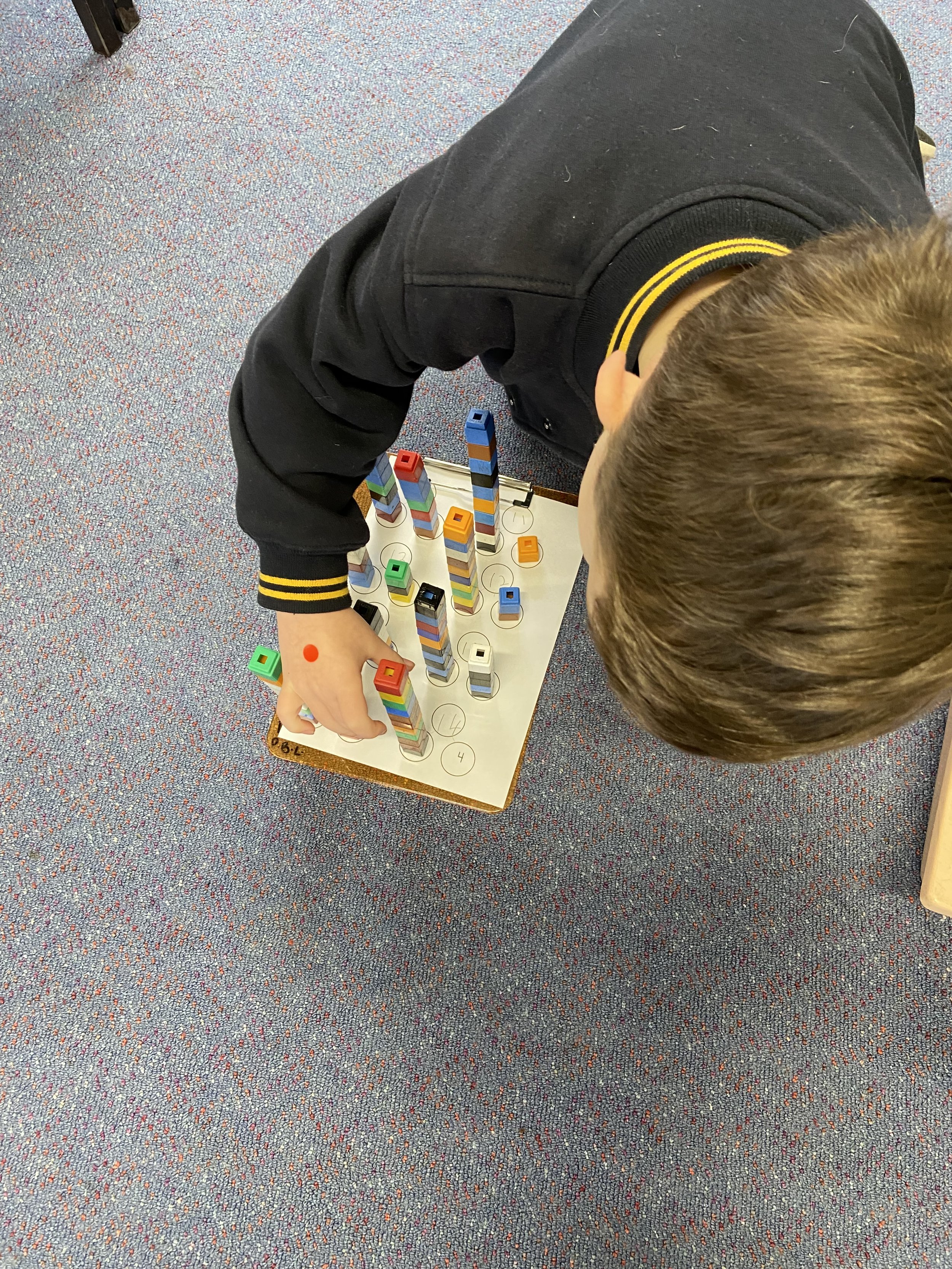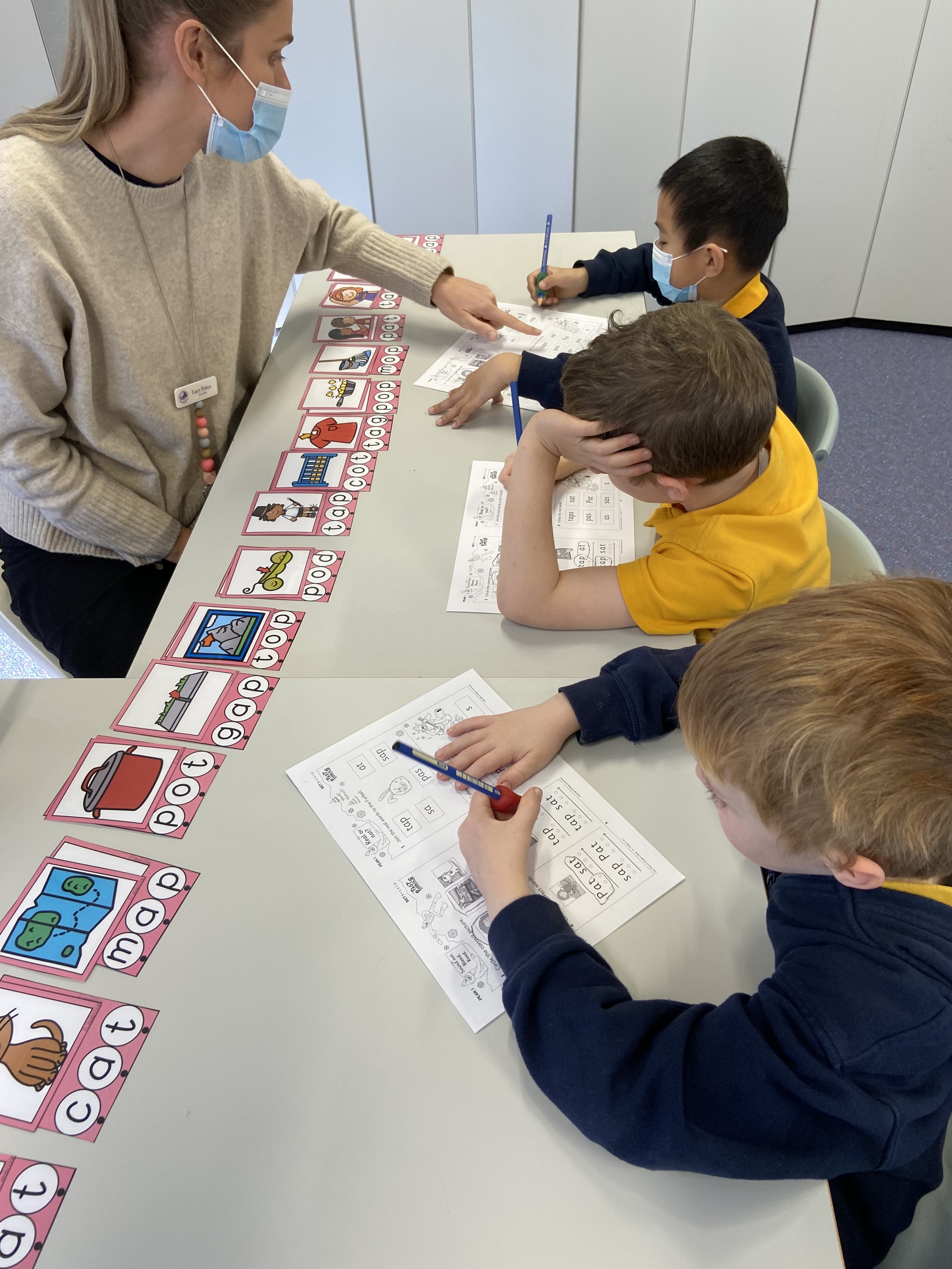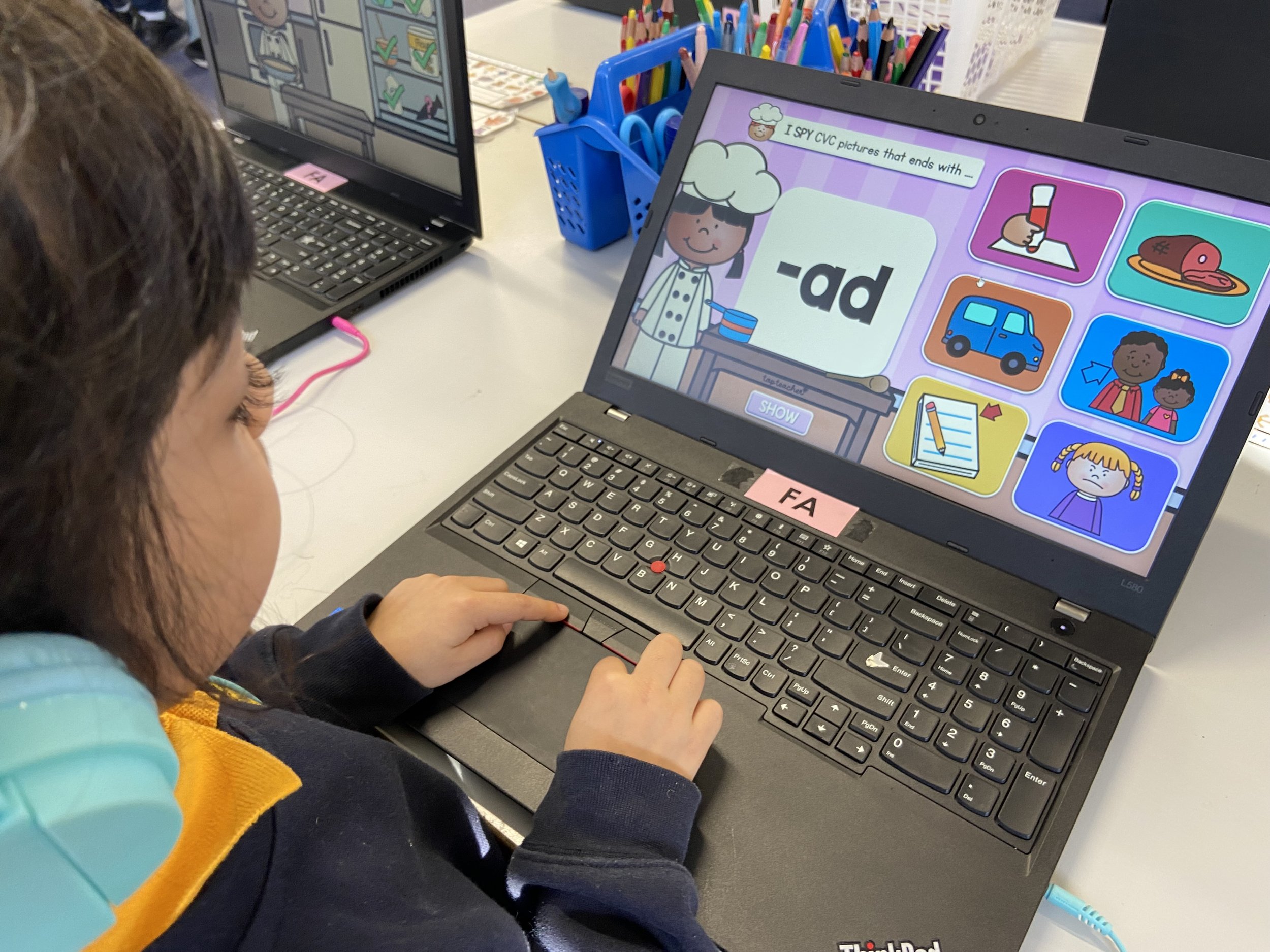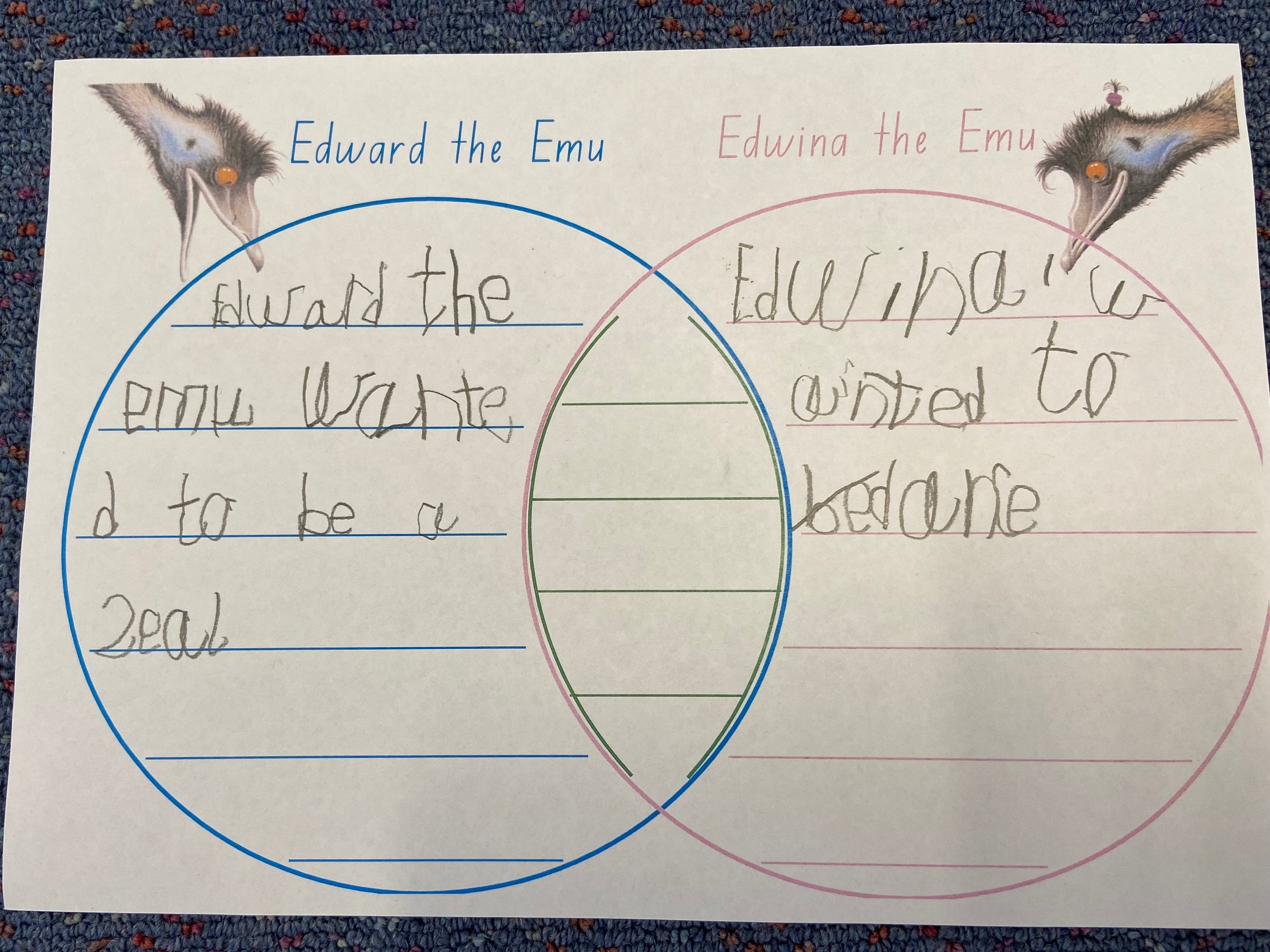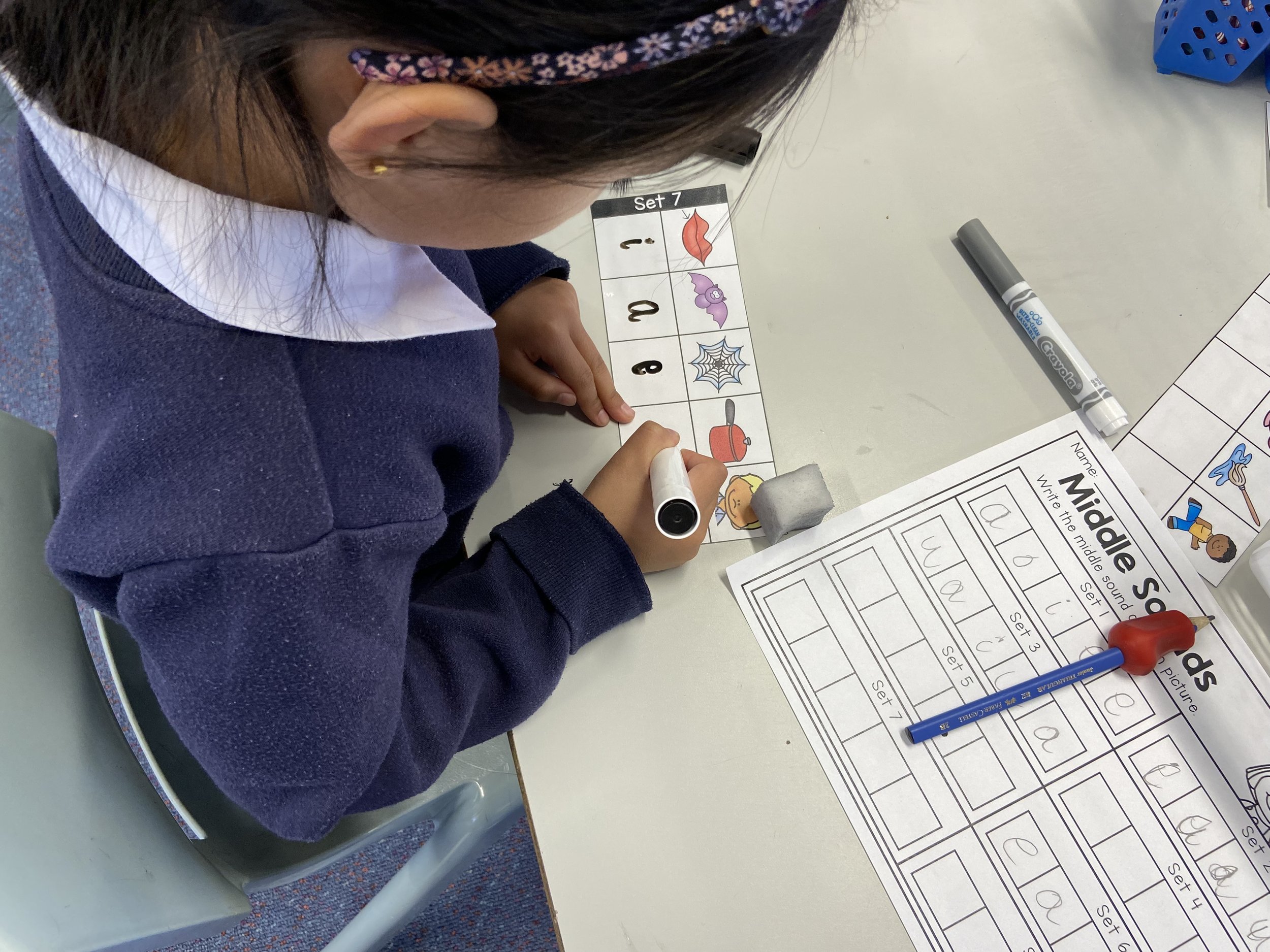Foundation
Welcome to our Foundation page.
Literacy
At Oakleigh Primary School, our approach to learning how to be literate, stems from our knowledge of the Science of Reading (SOR). It refers to how the brain learns to read and acquire language. We explicitly teach students how to decode (read) and encode (spell) using an evidence-based scope and sequence, ensuring that all students develop fundamental skills in language. We use the Multi-Sensory Structured Language approach (MSL) to teach reading, writing and spelling.
Under the scope of the Victorian Curriculum, the following components of the BIG 6- oral language, phonological awareness, phonics, vocabulary, fluency and comprehension are integrated and embedded into our literacy instruction.
In our Foundation level, fundamental skills in Phonological and Phonemic Awareness are carried out during our morning sessions. The Macquarie MultiLit/Pre-Lit Program is used during Term 1. This resource provides ways to explicitly teach early print concepts which assist in the development of early reading skills. For example: concept of a spoken word, syllable clapping to oral blending. We then move to the explicit teaching of the alphabetic code. The 44 letter/sounds are taught in a sequential sequence across the junior year levels.
We provide the students with a take home decodable book. The students use decodable books to practise the sound-spelling relationship and also to apply skills taught in class to read, spell and write. The students are also provided with irregular sight words (sometimes known as heart words). These words appear in their decodable book and are words that do not follow the alphabetic code and require the student to practise them regularly to ensure they can fluently recognise, read and write them.
Our writing model is integrated into the learning of our alphabetic code. Students begin by learning the representation of the letter when they hear the sound. Students are encouraged to record sounds that they hear in familiar words and also apply know spelling rules to write specific words. Our writing is linked to experiences offered to students. Personal events and experiences are used as a springboard for their ideas. Students are encouraged to see themselves as writers and are exposed to how writing is planned or organised. For example; leaving spaces between words, forming lower-case letters and using a full stop.
Our teaching approach focuses on meeting the individual needs of all students.
Numeracy
Numeracy in the Foundation year level is very much based on the theory that Mathematics surrounds us in our world and daily lives. Our teaching approach explores engaging, real life problem solving and skills using mathematical tools and equipment. Our school works on developing the four proficiencies in the classroom; Fluency, Problem Solving, Understanding and Reasoning.
In our Foundation year level, we set a purpose for learning and create an interest or ‘hook’ either through a Number Talk, a real-life experience/event or an object. We explicitly teach new concepts and skills, continuously modelling examples for students and asking them to share their understanding. The notion of “I do, we do, you do”, is very much embedded into our daily practices. We set an intention for the learning and ask students to apply their understanding to many varied experiences.
Initially the students explore and investigate all the different ways that numbers can be represented. This can include collections, dot formations, more or less groupings and representing the group with a number representation. Number patterns and combining groups to add, subtract or share are all areas of learning that are explicitly taught. Measurement and Geometry areas of learning, ask the students to explore and investigate comparisons between objects based on length, mass and capacity. The students explore the world of 2D and 3D shapes in their environment and collect information formulated by simple ‘yes’ or ‘no’ questions in Statistics and Probability.
Inquiry
Our Inquiry units of learning in Foundation explore how our world works and operates. The STEAM model to learning which incorporates; Science, Technology, Engineering, Art and Mathematics is used when planning investigations for the students which we call ‘Inquiry’.
We begin the year by focusing on getting to know ourselves and each other, adjusting to school routines, learning how to make new friends and treating each other kindly and with respect. Our Inquiry unit is called ‘Connections and Community’. This leads in to our ‘Same and Different’ unit. The students discover who they are and where their families are from and make comparisons about the similarities and differences between each other. Later in the year we explore how objects move and what makes them move. We look particularly at moving objects and we aim to produce an object with moving parts that may bring some enjoyment if played with. Our last unit ‘Staying Alive’, explores the differing needs of living things and what living things need in order to survive.
Positive Education AND RESILIENCE, RIGHTS AND RESPECTFUL RELATIONSHIPS
In Foundation, our explicit teaching and modelling encompasses a number of significant components of the PERMA model, (Positive Education, Engagement, Relationships, Meaning and Accomplishments).
We begin by looking closely at emotions. We find that the students begin Prep with an ability to recognise happy/sad and good/bad but can find emotions beyond these difficult to communicate and regulate. Throughout the year we focus on going more in depth with different feelings, understanding how emotions make us feel, strategies to deal with these and how to self-regulate our actions. We look at our personal strengths, how we can problem solve through situations of play and in the classroom as well as seeking help from our peers and adults at our school.
“Develop a passion for learning. If you do, you will never cease to grow.”

